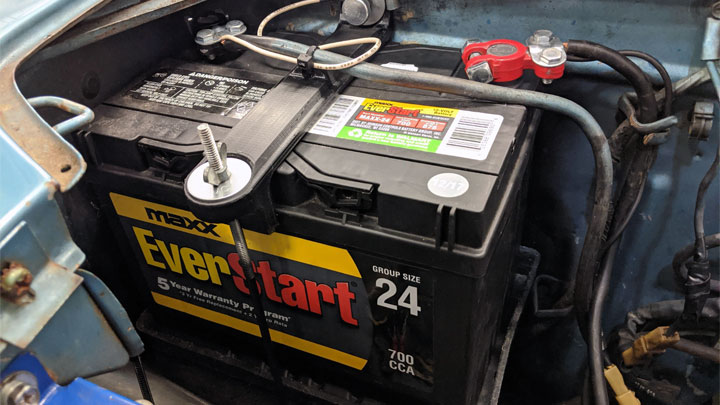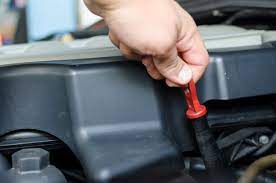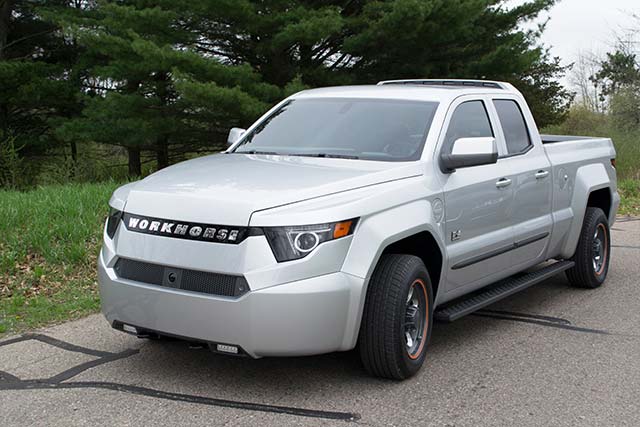How Reliable Is Hyundai? Hyundai is ranked in the top 1/3 of all car brands, but it’s not quite at Toyota’s level yet. That being said, there’s been a lot of improvement over the years, and Hyundai has shown that they’re willing to make changes to improve their cars’ reliability. The warranty on many Hyundai vehicles is also very good – five years/60,000 miles for most models.
How Reliable Is Hyundai?
Reliability depends on model and year.
The Hyundai brand is a relative newcomer to the American market, with its first vehicles being sold in 1986. Since then, Hyundai’s cars have earned a reputation for reliability that continues to improve. In fact, J.D. Power recently gave Hyundai an award for improving its overall quality as well as customer satisfaction over the past few years.
When choosing a vehicle from this manufacturer, it’s important to consider your options carefully because each model has different strengths and weaknesses when it comes to providing reliable transportation over time—and all of them come with varying warranties and resale values.
Hyundai offers several different models that are great choices for new drivers or those looking for their next family car: The Kona Electric comes with both auto braking and lane keeping assist; Sonata Hybrid boasts an EPA estimated fuel economy rating of 42 mpg city/40 highway/40 combined; Elantra GT has standard Blind Spot Detection System (BSD); Santa Fe Sport includes blind spot detection system (BSD).
Read also: Where Is Hyundai From and Does Hyundai Own Kia?
Infotainment systems are a problem
The biggest complaint about the car’s in-car technology is that it’s not very reliable. Many owners of Hyundai vehicles report that their infotainment systems are not easy to use, and sometimes they don’t work at all.
The problem is so bad that many people have filed lawsuits against the company alleging that their infotainment systems are defective.
Warranty could cover unexpected repairs
The Hyundai warranty is good for five years or 60,000 miles. If an unexpected repair occurs during that time, the automaker will cover the parts and labor costs. This coverage applies to all eligible vehicles purchased in the United States and Canada, whether new or used. The warranty also covers a number of parts as well as service procedures including:
- New vehicle power train components including engines, transmissions (automatic or manual), transfer cases and axles
- New vehicle electrical systems and related components such as wiring harnesses, connectors and sensors
- New vehicle major drivetrain components (drive shafts)
In addition to these basic terms of the Hyundai warranty, there are some limitations you should be aware of before purchasing your next car from this company:
Hyundai has come a long way
Hyundai has had more than its fair share of recalls in the past. But that doesn’t necessarily mean it’s a bad brand; it just means Hyundai has made some unfortunate mistakes.
However, even though Hyundai has had problems in the past, there are signs that things are improving for them. For example:
- They have made improvements to their electrical systems
- They have improved their infotainment systems
- And they’re working on fixing their engines
Common Hyundai Problems
The following are common problems you will experience with a Hyundai car:
Transmission slipping
If the transmission isn’t in gear, it’s called slipping. This can be caused by a problem with the transmission or with a sensor that tells the car what gear to be in. Slipping can also cause stalling.
Leaking oil
Leaking oil is a common problem in Hyundais. Most of the time, this is caused by a faulty gasket between the engine and oil filter or valve cover. The leaking can also be attributed to a faulty oil pan or faulty oil filter.
Oil leaks are not only annoying because they are messy and smelly but also because they waste oil, which is expensive to replace.
Acceleration problems
Acceleration problems can be caused by a number of different issues. The most common cause is a faulty accelerator pedal, but it could also be an ignition coil or faulty accelerator pedal sensor. If you notice that your car isn’t accelerating as quickly as it should, have the issue checked out as soon as possible to avoid any further damage to the vehicle.
Defective airbag(s)
If you have a Hyundai vehicle, there is a possibility that the airbag(s) may be defective. The airbag is a safety feature of the restraint system and includes both frontal and side impact airbags. It should deploy in the event of an accident to protect you from injury. A defective airbag can cause serious injury or death by not deploying as it should or by deploying at the wrong time during an accident.
Windshield wiper malfunction
If you are experiencing problems with your Hyundai windshield wipers, there are several things that can be done to fix the issues. The first step is to check the wiper blade for damage and replace it if necessary. Next, check the reservoir for debris and refill with new fluid if needed. If you still experience issues after these steps have been completed, continue down this list until you find what’s causing your problem:
- Check wiper fluid level
- Check wiper switch
- Check wiper motor
- Check wiper arm
- Check relay or fuse
Hyundai is a great car, but it has some problems that you should be aware of. To begin with, Hyundai’s cars are too small for most American drivers. They’re not just too small for the average American—they’re too small even for people who are 5’10”. So if you’re 6 feet tall or more and are thinking about buying a Hyundai, I strongly advise you against this purchase.
Secondly, many Hyundais have had issues with their braking systems over the years. This means that your brakes could stop working at any time while you’re driving down the road (which would be bad). If you want to avoid this problem when buying an SUV or truck (and let’s face it: who doesn’t?), then consider purchasing something made by Ford or GM instead of Hyundai; both companies have excellent reputations when it comes to producing safe vehicles that won’t suddenly stop working while you’re driving them.
How To Care For Your Hyundai Car
Regularly change the oil and oil filter
Since oil is what keeps your engine lubricated, it’s important to change your oil regularly. Regularly changing the oil and filter helps reduce friction, prevent wear and tear, and ensure a long life for your engine. While there is no set rule as to how often you should change your oil, we recommend doing so every 3,000 miles or 4 months (whichever comes first).
The process of changing an oil filter involves removing the old one from its housing and replacing it with a new one. This can be done in about 10 minutes at most service stations for about $20-$30 depending on the type of filter you use and whether or not you need any additional parts like gaskets or sealant tape.
Maintain your air filter
It’s important to check your Hyundai air filter to make sure it’s clean and functioning properly. To do this, use a flashlight and look through the mesh of the air filter. If there are any fine particles in the material, that means it needs to be replaced. Your Hyundai dealer can help you find the right replacement filter for your model car and install it correctly as well.
If you don’t replace your car’s air filter regularly, or if you have a dirty one in place already, it could impact how well your engine works over time—and even cause damage! This is because dust and other contaminants stick onto dirty filters more easily than clean ones do; this leads to clogging up vital components inside of your engine (such as valves) with gunk that could otherwise get cleaned out by airflow from an appropriately-sized HVAC system being filtered properly into its environment before being exhausted outside of itself again later on down roadways like highways where cars drive fast but not always safely sometimes because they’re distracted by cell phones etcetera…
Check the fluid levels and top them when needed
- Check the oil. It’s a good idea to check your car’s oil level every time you fill up with gas and at least once every 3,000 miles (4,828 kilometers).
- Check the coolant. You should also check the coolant level in your Hyundai once every 6 months or so; this will help prevent damage to the engine caused by overheating.
- Check brake fluid levels occasionally as well; they should be checked when you change your tires and not so much more often than that because adding brake fluid isn’t really doing anything anyway other than possibly making things worse by adding air into an already full system of brake fluid!
- Power steering fluid should also be changed about as often as brake fluid is changed (see above), but generally speaking there shouldn’t be any need for topping off power steering because it doesn’t tend to leak out very fast unless something happens like hitting potholes etc… So if all else fails just keep checking from time-to-time until one day something breaks down entirely!
Check the tires regularly and keep them properly inflated
You should check your tire pressure regularly, as it can change over time. Tire pressure should be checked when the tires are cold.
Keep up with regular engine tune-ups
Keep up with regular engine tune-ups. Tune-ups are important to keep your car running smoothly. They’re an important part of car maintenance, and should be done at the recommended interval (usually between 40,000 and 50,000 miles). A tune-up includes: oil change, air filter replacement, spark plug replacement and inspection of various other engine parts for wear or damage. For example: If you fail to replace your air filter regularly—or if you neglect other maintenance tasks—carbon buildup will occur inside your engine; this can cause poor acceleration and power loss.
If a warning light comes on, stop in to get it checked out promptly
If a warning light comes on, stop in to get it checked out promptly. If you ignore the warning light, you could damage your car. If the warning light is on, you should have it checked out by a professional.
These tips will help you keep your Hyundai car in tip-top shape!
It’s important to have your car regularly serviced and maintained. These tips will help you keep your Hyundai car in tip-top shape!
Maintenance: Most manufacturers recommend that you get regular maintenance on your vehicle, including oil changes, tune-ups and fluid checks. Most cars need this at every 5,000 miles or so; ask a local mechanic in your area how often they recommend these appointments for your particular vehicle type. If it’s not something you’d be comfortable doing yourself (and good luck!), take it to the dealership where they’ll do it for free under warranty. They’ll also be able to tell you whether they’re due sooner than normal due to any problems detected during inspection—which leads us on to…






